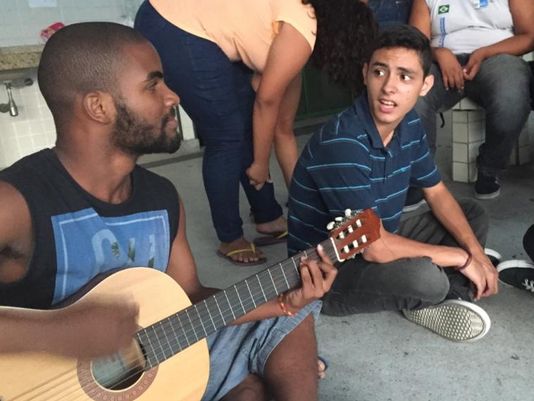Inside Rio's high school 'Occupy' movement

A knock at the door of Gomes Freire de Andrade high school in Rio de Janeiro elicits a rather odd reply: “Occupy Gomes, how can I help you?” It’s a teenager’s voice. The door is locked — padlocked on the inside by one of the 60 or so students who recently took over this small school in a gritty neighborhood in Rio’s North Zone. They first “occupied” the campus almost three weeks ago, deciding to take measures into their own hands to protest what they see as the dismal condition of their public education. Gomes was the second school to be taken over by protesting students in Rio de Janeiro. In the weeks since, some 34 others have followed, according to the state Department of Education. The youth "Occupy" movement comes on the back of a recent strike by state teachers, who say they haven’t been paid in weeks.
The movement is just one element of a large and growing crisis in this country’s second largest economy, host of the Summer Olympic Games just four months away. The state of Rio de Janeiro is, basically, broke. Public employees from doctors to cops to firefighters have been striking after not receiving paychecks on time, or at all. Overall, about 500,000 workers haven’t gotten paid, and 30 different state labor forces have gone on strike, according to local media reports. Rio is emblematic of Brazil’s economic fall from grace, says Mauricio Santoro, a political science professor at Rio de Janeiro State University. As the economy boomed in the 2000s, Rio shone as a beacon of what the new Brazil could be. Now, as a recession drags on, the state is falling apart. “This crisis in Rio is part of a much bigger crisis in Brazil, and it’s a warning for what could still be coming,” Santoro says.
